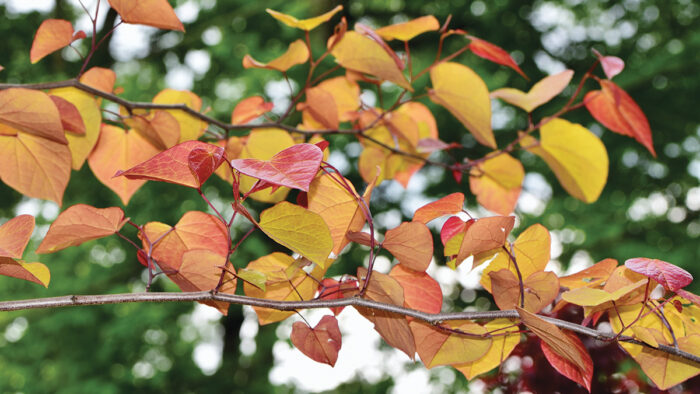
If you’ve run into a garden rut, we’ve got you covered. It’s time to start planning for your first trip to the local nursery or garden center. What plants will you need for a new garden area? Are you noticing a lack of excitement or color outside (we call this the mid-spring slump)? Just itching for an exciting new addition to a well-established bed? Now is the time to make a list of the perennials, shrubs, and/or trees that will fill those needs.
To help you make the best choices, we’ve asked regional garden experts to tell us what plants are on their spring shopping lists. These plants serve a range of purposes in the garden, but all are region-specific stars. From out-of-this-world flowers to show-stopping foliage and everything in between, discover fantastic plants that would be a welcome addition to any garden in the region.
Find great shopping-list plants for the Midwest below, and check out this comprehensive collection of articles to discover more springtime planting and planning inspiration.
1. ‘Airbrush Effect’ hibiscus
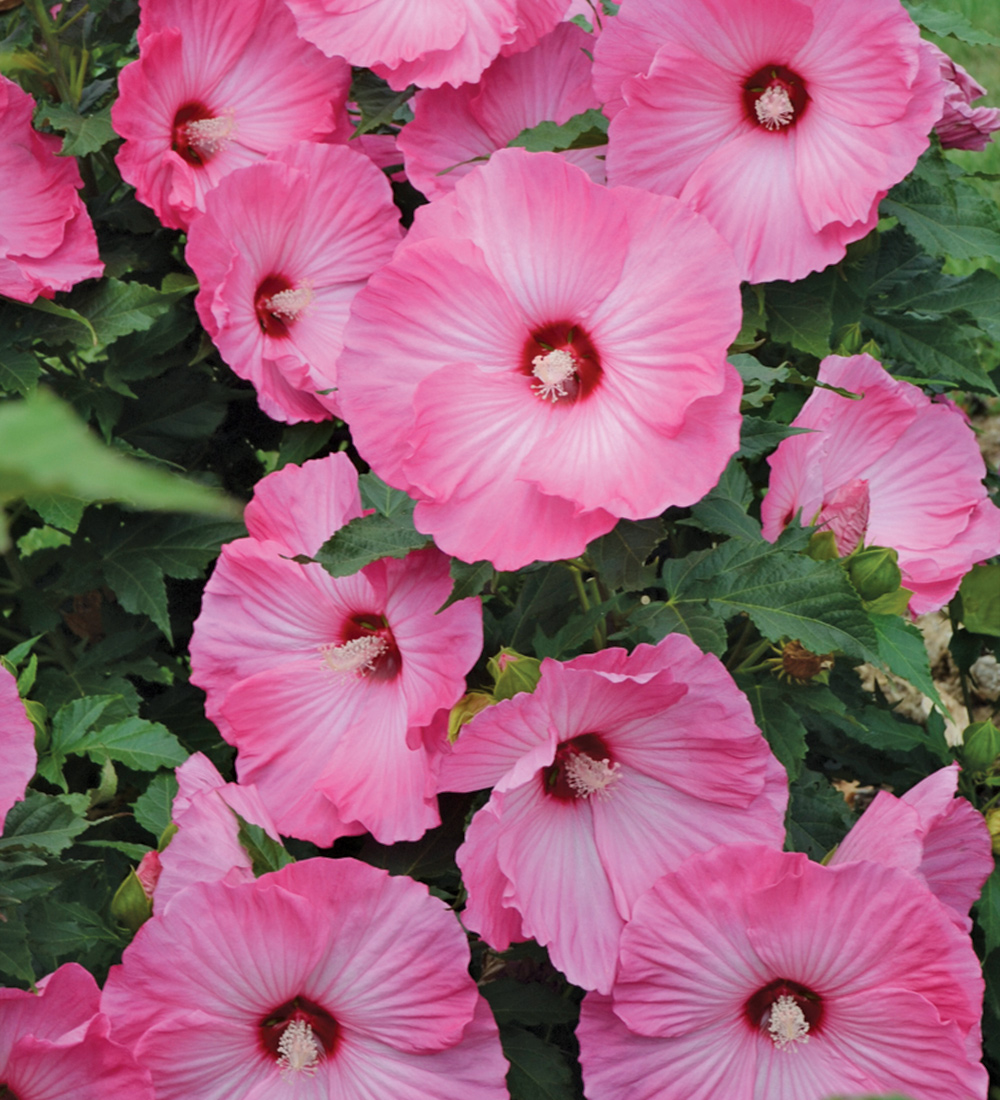
Name: Hibiscus ‘Airbrush Effect’
Zones: 4–9
Size: 3½ to 4 feet tall and 4 to 4½ feet wide
Conditions: Full sun; average to moist soil
Native range: Hybrid of North American species
If you need something special to plant outside your kitchen window or you want flowers you can spot from across the yard, this exceptionally brilliant hibiscus is the one. Each 8-inch, ruffled, hot pink blossom has a white glow that emanates onto the petals from the small, deep red eye. Since so many flowers open at once, the whole canopy of dark green foliage becomes shrouded in vivid pink. It’s a breathtaking sight every year from midsummer into early fall. Because of its tropical look you might assume this is a tender perennial, but it is reliably hardy down to –30°F. Be aware that perennial hibiscus go completely dormant for winter and are some of the last plants to reemerge in late spring. When they finally do appear, they will make up for lost time by growing an inch a day.
2. Flame Thrower® eastern redbud
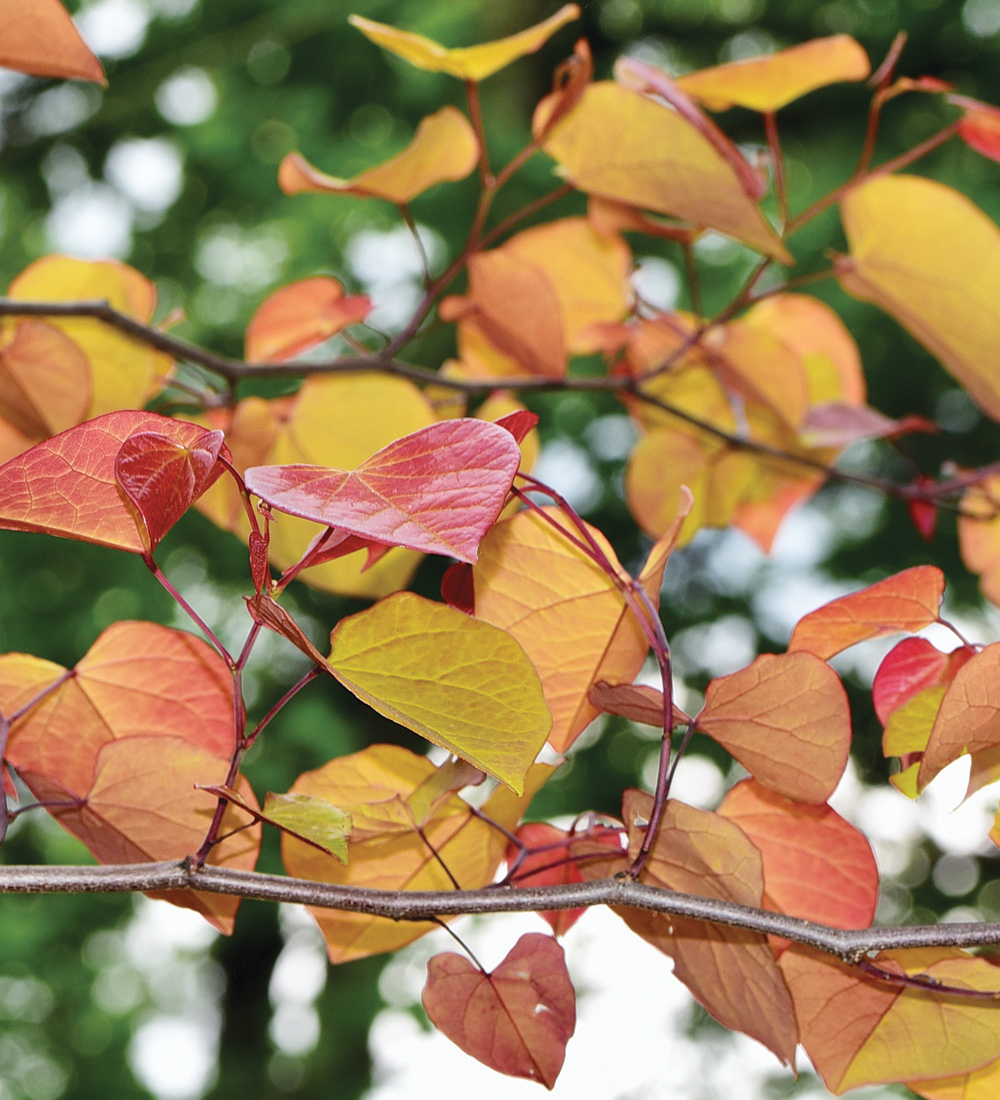
Name: Cercis canadensis ‘NC2016-2’
Zones: 5–9
Size: 15 to 20 feet tall and 10 to 15 feet wide
Conditions: Full sun to partial shade; average to moist, well-drained soil
Native range: Eastern United States
Native redbud trees are beautiful, but their main point of interest is typically the short-lived, vivid pink blossoms that appear in early spring before the leaves form. Flame Thrower® kicks it up a notch with prismatic foliage that wows all season long. In spring the large, heart-shaped leaves emerge deep red and purple, then transition through shades of burnt orange, bronze, gold, and yellow before mellowing to green. This kaleidoscopic color show is present on every branch throughout the growing season, with the youngest leaves at the tips drenched in the deepest red. Use this juglone-tolerant tree as a focal point and leave it undisturbed, as redbuds resent being transplanted. Flame Thrower® was named Plant of the Year at the Chelsea Flower Show in 2021.
3. Rise Up Emberays® rose
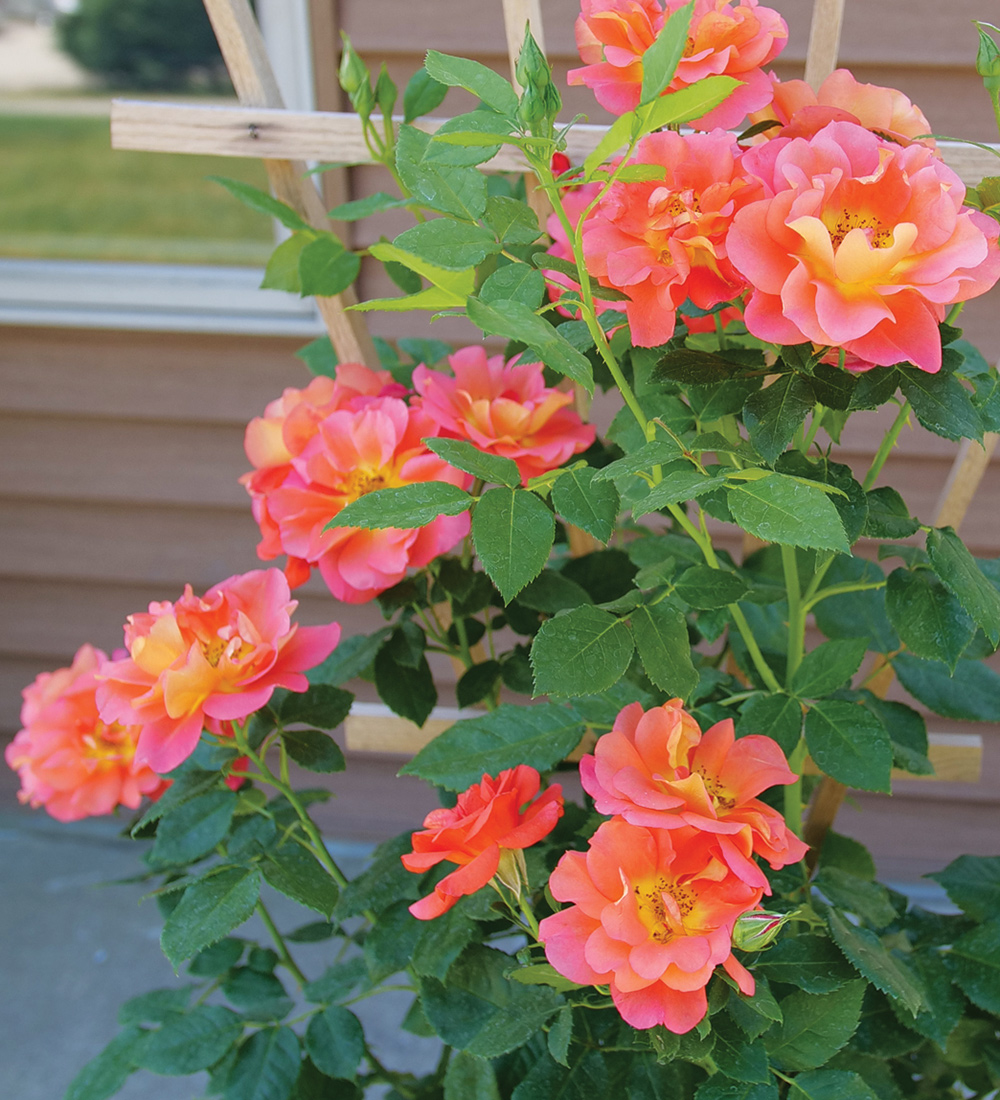
Name: Rosa ‘Bozfra321’
Zones: 5–8
Size: 3 to 5 feet tall and 2 to 3 feet wide
Conditions: Full sun; average to rich, moist, well-drained soil
Native range: Hybrid
Each time I’ve seen the flowers of this climbing rose they have looked a little different, but in every instance they have been absolutely stunning. You might catch a note of their soft fragrance when the petals are still tightly bound, glowing in shades of coral and orange with a bright yellow eye. The blossoms are just as beautiful as they unfurl into a classic bowl shape and soften to light pink. Their warm colors really pop against a backdrop of exceptionally glossy, deep green, disease-resistant foliage. Pollinating bees and butterflies seek out the frilly, golden, pollen-laden stamens in the center of each bloom all summer long. Use a short trellis to train this petite climbing rose upward, and prune it back by at least one-third each year in early spring.
4. Partridge pea
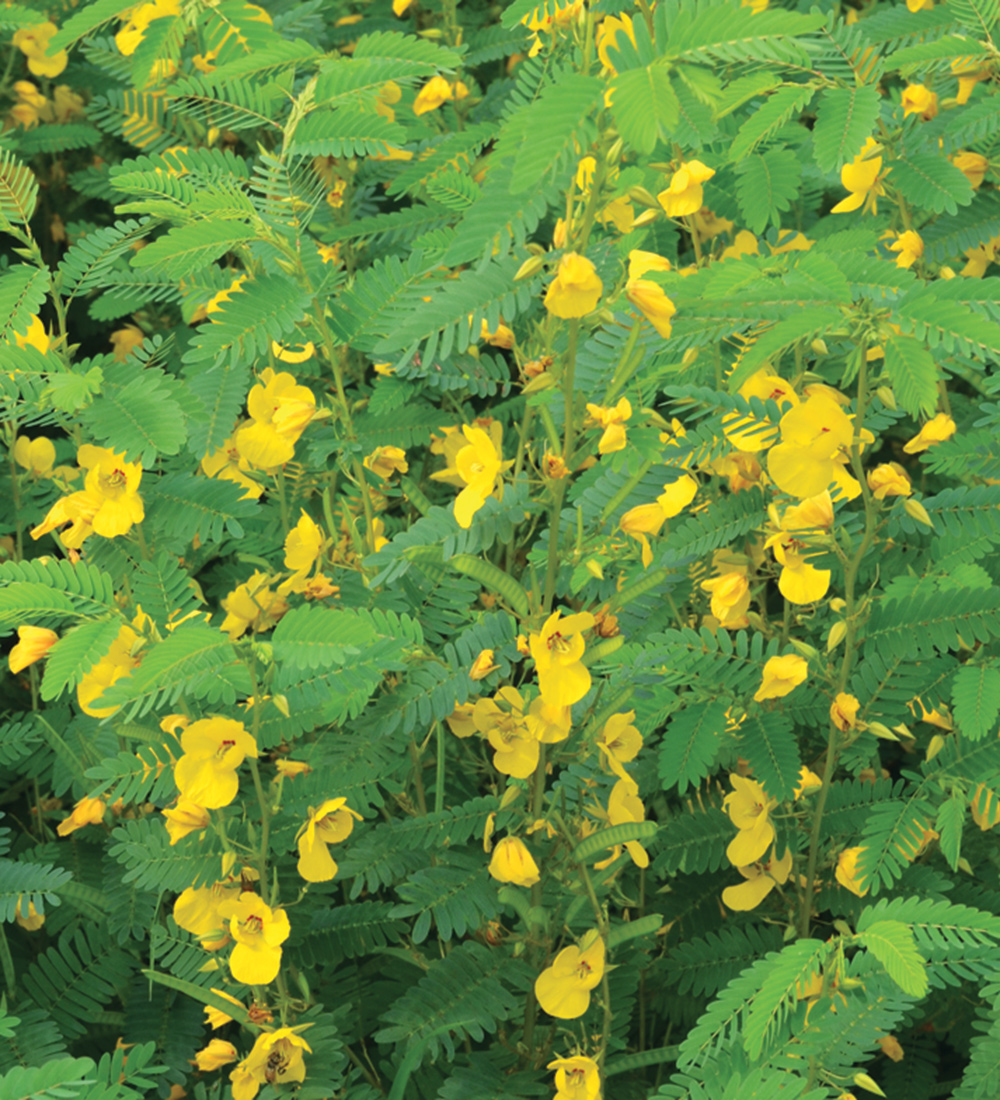
Name: Chamaecrista fasciculata
Zones: Annual; reliably reseeds in Zones 3–9
Size: 1 to 3 feet tall and wide
Conditions: Full sun to partial shade; average to dry soil, adaptable to most soil types
Native range: Eastern, central, and southeastern United States
If you have a flat or sloped space that you are tired of mowing, consider replacing the turf with native grasses, sedges, and wildflowers such as partridge pea. This reseeding annual legume serves as a nectar source and larval host for pollinating bees and butterflies, and the resulting seeds provide nutrition for songbirds and game birds. Expect the clear yellow flowers to bloom nonstop from early summer to early fall. The nodules on the roots help to fix nitrogen from the air, which in turn enriches the soil as the plants break back down into humus. Deer occasionally browse its ferny, apple-green foliage, but since the plant reseeds regularly there should be plenty for everyone to enjoy.
Susan Martin is a freelance marketer, writer, and speaker who has worked in horticulture for 24 years and is a lifelong gardener from Michigan. You can find her on social media @Gardener Sue’s News.





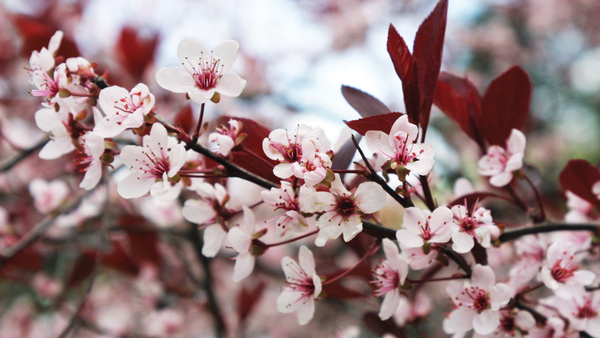
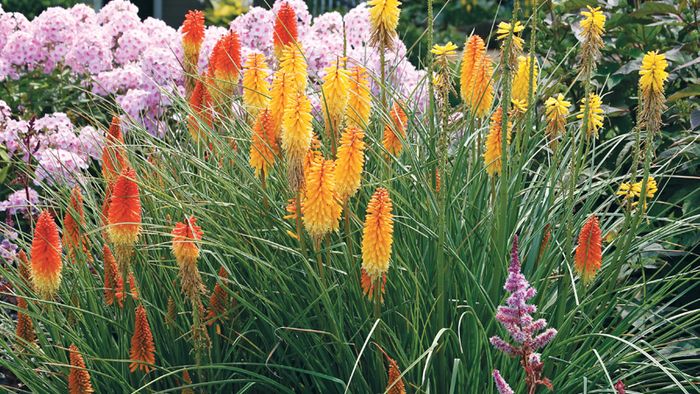
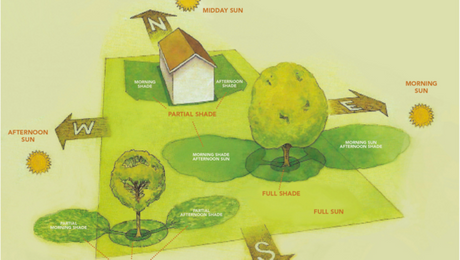
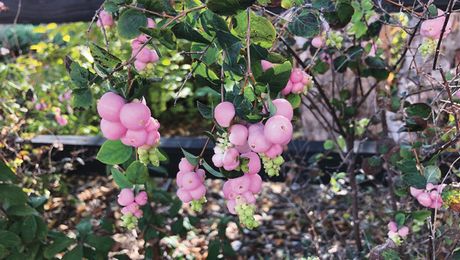

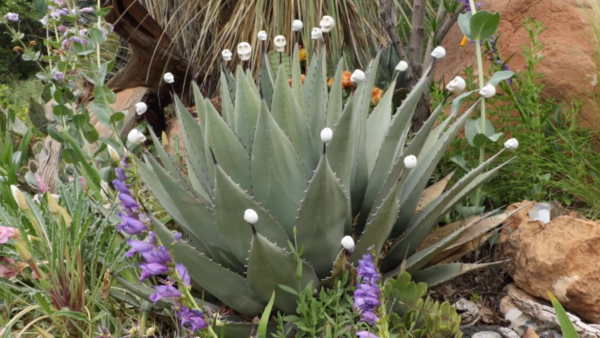
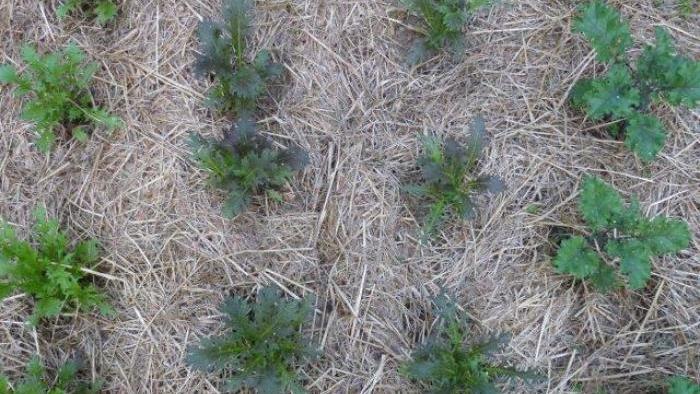






Comments
Log in or create an account to post a comment.
Sign up Log in